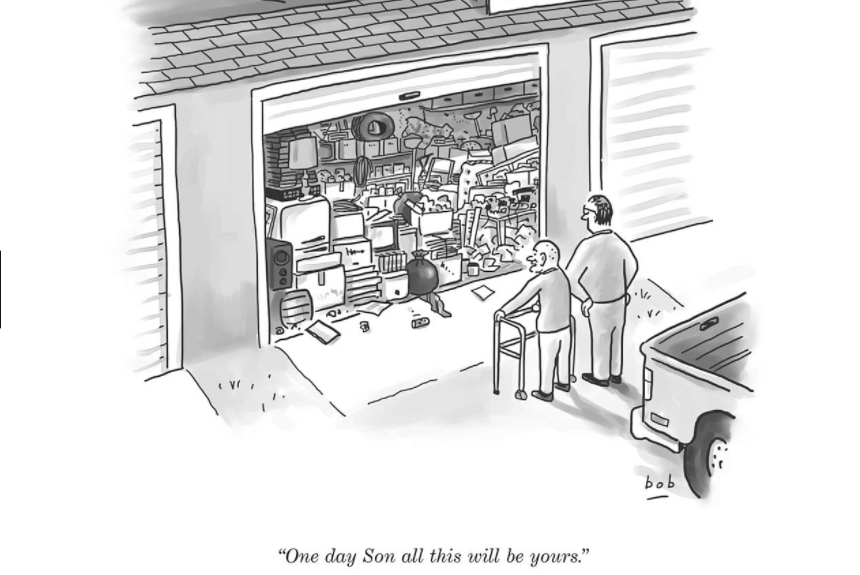May 12, 2017
Millennial Evangelicals and Church
It’s a thing of wonder to watch the dismay among ageing Boomers as they realise, belatedly, that their Millennial progeny have next to no interest in taking on their mantle. And I say that as the bloke in the middle – the self-effacing ironic X-Gen guy.
And that lack of interest in maintaining the Boomer legacy is as true in the church as it is in the wider culture. In fact it’s true in the church because it’s true in the wider culture.
Boomer church leaders just don’t get why Millennial evangelicals are stubbornly refusing to take on the church culture that the Boomers lovingly, and at great cost, created over the past forty years.
You know the culture I mean; heavy on activity, program, sign-up cards, structured training, conference style worship. And if you’re a church leader with at least another 20 years leadership left in you, then you’d better realise this rejection by Millennials, and quickly.
Now I do not mean that in order to be Christian in the coming decades Millennials will need to junk theological orthodoxy so that they can find a safe place in the culture. That is and will continue to be a blind alley. There will be no safe place in the culture.
Millennial evangelicals who, either through conviction, or through the drip-by-drip coercion of a hostile culture, reject Christian orthodoxy and orthopraxy (particularly in the area of sexual ethics) will no longer be in our churches in two decades time.
The seeds of heterodoxy are genetically modified to die out altogether after one or two seasons – each season being less fruitful than the previous. And the pace of this fruitlessness will increase.
Rather dismally, I predict something of a quick collapse among younger evangelicals in the West, rather than the slow decline experienced by Boomer mainliners.
But Boomer evangelicals should not simply assume that Millennial evangelicals who remain orthodox will simply come back to their way of doing church as this collapse occurs.
Up until now the general Boomer assumption has been that like some maturing prodigal who puts away the husks and pods of the hyper-modern age, Millennials will come to their senses and come home to their ways of thinking and practice.
This is proving false in every way, except for the fact that Millennials often do have to come home – to live, because the housing market is priced beyond their reach. And for that they are blaming the Boomers.
But it’s not just about housing, and it’s not just about worship style. As I said a few posts ago. the sheer complexity of life that Millennials are grappling with as they grow up, pair up and then procreate, is daunting. It is also far beyond what their Boomer parents experienced at the same age.
A constant complaint by Boomers – inside and outside of church – is that Millennials are way too distracted by technology for their own good, and that it’s leaving them hollowed out and short on stickability.
Yet that underestimates, firstly, how digital natives such as Millennials first experience, then engage with their world. Secondly it underestimates the pace of change Millennials put up with.
Boomers need to realise that change is no longer occurring in centuries or even decades, but in years. Some humility would help. The charge by Boomers that back in their day life was paced more slowly, with less distractions, only works if they compare it forward to now.
But backward? Boomers need to realise that their standard is not the standard. A sixteenth century farm boy transported to 1965 would go mad trying to cope with the pace of life in the middle of the twentieth century that Boomers took for granted. The span of the leaps forward in communications technology across four hundred years is now crossed in just fifty. And Millennials have adapted themselves well to it, all things considered.
The average Millennial negotiates and interacts with a mind-numbing level of people in one day compared not simply to sixteenth century farmer boy, but to Woodstock boy too. Often this is at superficial levels, but it is still human interaction nonetheless. It’s the world now, and it’s not going to change.
So when it comes to church, the idea that somehow Millennials should turn up, turn up their sleeves and get busy with more people they barely know, isn’t going to work. Especially if that busy looks like running an attractional model of church that they can clearly see isn’t cutting it with the Boomers peer group, never mind the Millennials.
The church growth model of Boomer church is over and Millennials know it. They know that no matter how attractive they make the package on the surface, their peers are not stupid. Secular Millennials are not going to simply slip into Christianity on the basis of a nice building, a six-part sermon series on marriage, and good child care.
Their peers now know that to be Christian means to sign a blank cheque, hand it over to Jesus and allow him to say what needs to change. And they know that means sex has to change. And because sex is now the foundational identity marker of humans in this new sexular age, no amount of funky church will hide the stench of death-to-autonomy that brings to Millennials.
But many of the church planting ideas of later Boomers and early X-Gen types won’t cut it either, not in one important way at least. Millennial evangelicals are not all that interested in church just looking like anything else, but with spirituality. Much was made of how we have to make church life just look like ordinary life. Millennials don’t want that.
They want difference. They want strangeness. They want liturgy. They want a sense of the spiritual drama. They want sermons not talks! Fancy that. Sermons. After all of the effort that has gone in to making a sermon as smooth and as sweet as a milkshake, Millennials are looking for a steak to sink their teeth in to.
Above all they want church to primarily be a place for Christians. Yes, non-Christians can come, but for heaven’s sake (no pun intended), raise the bar, thicken the liturgy, heighten the sense of encounter with Christ in Word and sacrament. be a place of recuperation and recovery. Be a place of rest!
It’s completely possible to do all of that and keep a strong sense of community that has both a love for God’s people and an outward focus on the world. In fact it will only keep a strong sense of community and outward focus if you do that. How do I know that? Because I’ve noticed it happening as we do it at our church.
And what else should we be doing at church as we go forward into Millennial-land? I reckon not much else. Make the weekly gathering your main event. Strip it back a little in terms of performance, and allow the drama of Scripture and liturgical frameworks to shine.
And people will come to two things at most. So think hard about what that second thing is. And, sorry, my conservative evangelical brothers and sisters, the second thing should not necessarily be a weekly Bible study group.
That’s not to say that people should not be encouraged to study the Bible together, but the second event you put on must encourage people towards the gospel community life that the first event presumes. One event preaches the community of God’s people under Christ. The second event practices it. In this fast paced world you won’t get a third crack at it on any regular basis, so make that second one count.
And then cut the rest of your programs. I can hear the Boomers going “Ouch!”. But let me tell you I haven’t heard a Millennial at our church ever complain that there is not enough on at church. And if they do, I’m happy. Why? Because I’m trying to leave them wanting more, not wanting less. And if they want more, they’ll make more happen themselves.
And when I scratch the surface, there are a whole load of Boomers who feel quite naughty, but a little bit relieved by this shift; at how non-demanding of them we are in terms of running the kinds of events and activities that have been experiencing the law of diminishing returns over the past decade.
Maybe you’re saying “Ouch!’ too as you read this because it seems a bridge too far, or because it’s giving too much away. And you’ve learned to never give anything away because it might be useful again someday. Even that VHS recorder. Especially that VHS recorder.
If that’s you, then perhaps you can ponder the cartoon below for a while, and think about the conversation going on in the younger man’s head.

Written by
There is no guarantee that Jesus will return in our desired timeframe. Yet we have no reason to be anxious, because even if the timeframe is not guaranteed, the outcome is! We don’t have to waste energy being anxious; we can put it to better use.
Stephen McAlpine – futureproof
Stay in the know
Receive content updates, new blog articles and upcoming events all to your inbox.


